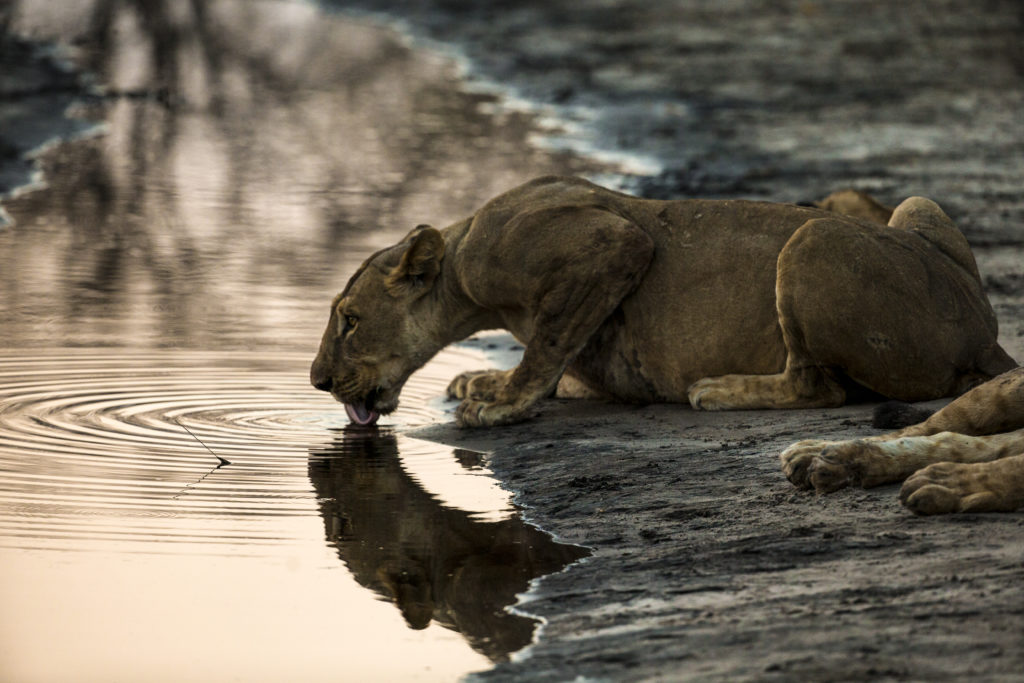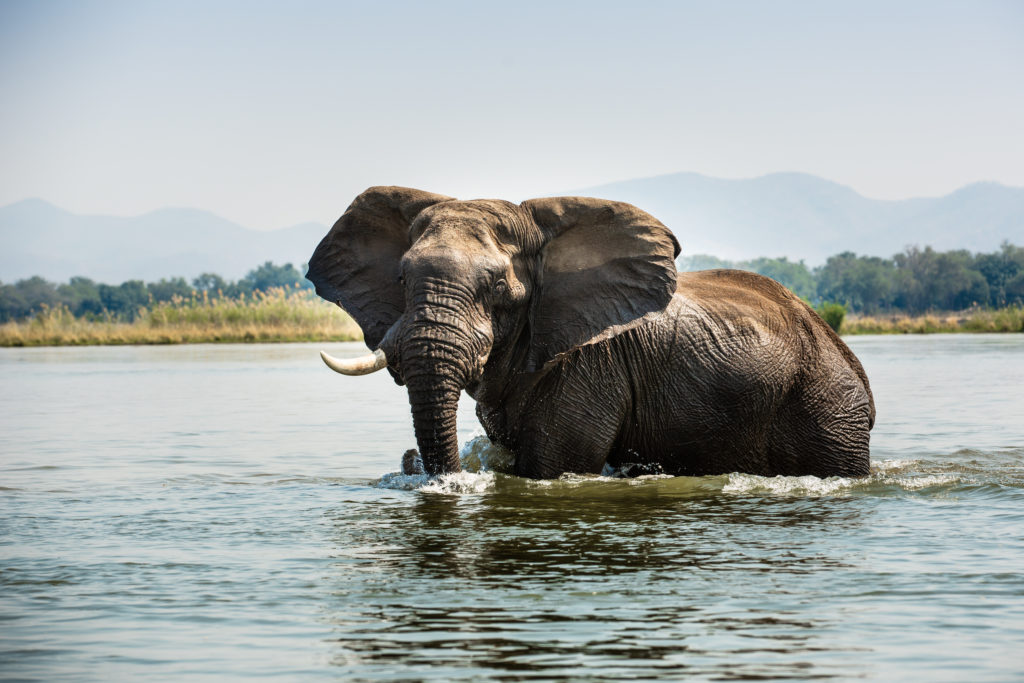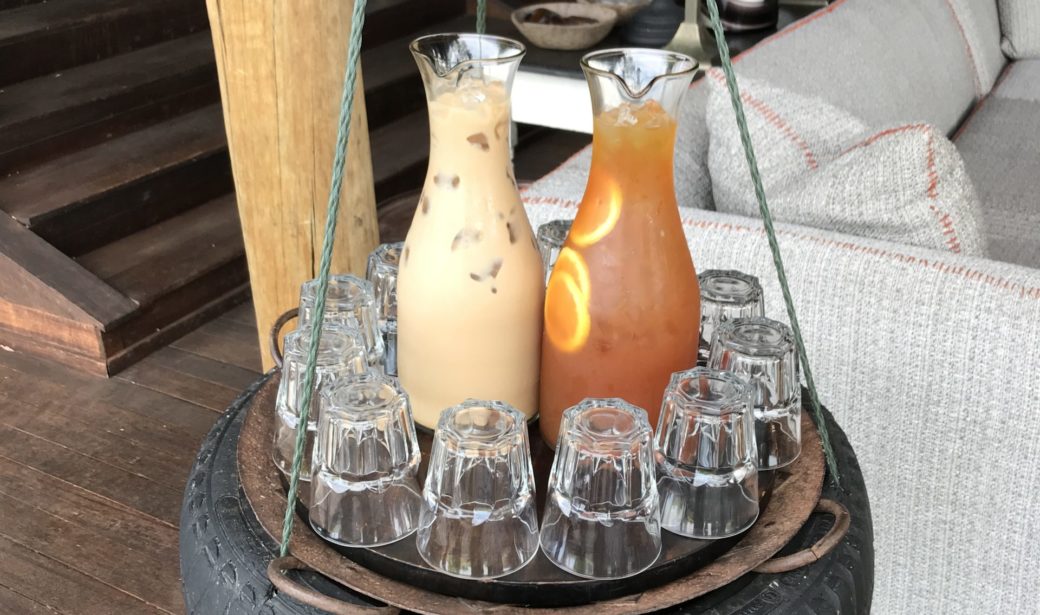
We often get asked what the biggest dangers on safari are. Many guests would think these are animals, be it large ones like hippos or small ones like spiders or snakes. The fortunate answer is that going on safari is very safe, provided you listen attentively to safety briefings, exercise common sense and respect in wildlife areas you will generally be very ‘safe’. Small crawling creatures are also something rarely seen, yes there are insects around but much less than one might expect and they are not dangerous. Most safari camps have mosquito nets around the beds, the turndown service makes sure that the rooms are clear of any crawling or flying insects and most guests are surprised how easy travelling on safari actually is.
One challenge or call it danger is one that gets often overlooked, it is the danger of dehydration. We have experienced numerous cases where guests in camps tell us that they have runny tummies because of the food. It is almost never the food. The level of hygiene in Southern African kitchens is very high. The cause for an upset stomach is most of the time dehydration. Especially during our summer months between September and March when there is extreme heat and dry air. Being outdoors all day, exposed to the sun and the heat means the body needs more fluids than ever. In addition to possibly not drinking enough is also the danger of drinking the wrong things. The water available in Botswana is reverse osmosis water, it contains none of the important minerals required for adequate rehydration.
Why does travel increase the risk of Dehydration?
Often guests arrive in our destinations after long and exhausting flights. Their bodies might already be dehydrated after spending long hours at airport, in planes with lots of dry air causing our system to dry out even more. We often forget to drink, during night flights the access to water on planes is limited, we tend to avoid drinking not to have to run to the bathroom too often. Our routines tend to be very interrupted during travelling. When arriving in our destinations our guests are often surprised how hot and dry the air is. In the hottest months of October and November it sometimes feels like being blown at by a hairdryer (the hot setting). Our guests are used to drinking maybe 2 litres a day when at home, now they are suddenly expected to drink more than 3 litres, and also not only water? Not an easy task we know. We recommend our guests to carry rehydrates, drink mixtures of water with some juice, this helps hugely with maintaining the levels of fluids in your body at a healthy level.

Fight the heat and stay hydrated; here is how…
Always cover your head and neck – wide brimmed hats or baseball caps with a buff or light scarf around the neck will do the trick
Use a recyclable water bottle – a normal steel or aluminium bottle which can be refilled (most lodges and camps will offer one for your stay but its better to have one just incase), but don’t leave it in the sun. Also avoid plastic bottles, they will degrade and sometimes leak chemicals into the water faster at higher temperatures.
Don’t forget to drink often – drink small quantities of water at regular intervals, about every 10 to 15 minutes, instead of one large amount. This way you’ll be sure to rehydrate regularly. If you have children, make sure they are also drinking enough and often.
Do not underestimate the heat – because of the lack of humidity you might not feel the heat as much, which can lead you into a false sense of security. However this type of heat we have here is generally the most dangerous exactly for this reason. You might think everything is fine, while in the mean time you’re getting dehydrated and are at risk of a heatstroke.
Most importantly make sure that you watch out for early symptoms
A mild headache is most of the time the first sign that you’re dehydrated (whenever this happens drink plenty of water, ideally add a rehydrate or if not readily available a small pinch of salt to the water).
Nausea is also not to be taken lightly, notify your guide so that it can be dealt with before it gets worse.
BIG SECRET: bring rehydration sachets and use one daily preferably in the morning and these come in handy incase of severe dehydration. (Always be sure to follow the indications on the package and never exceed the recommended dosage!)

